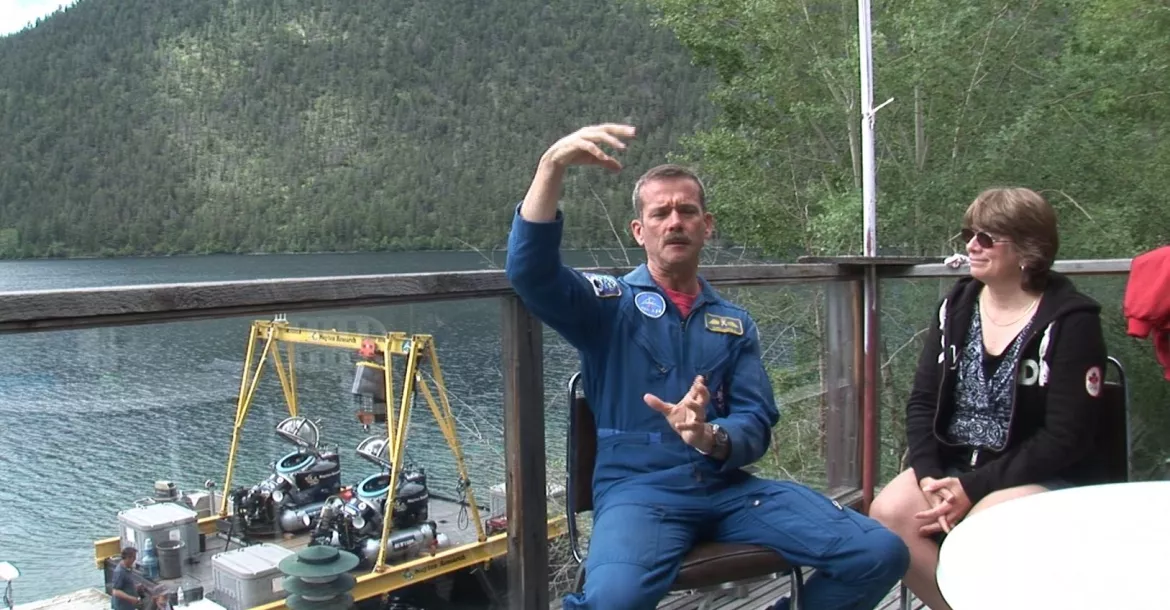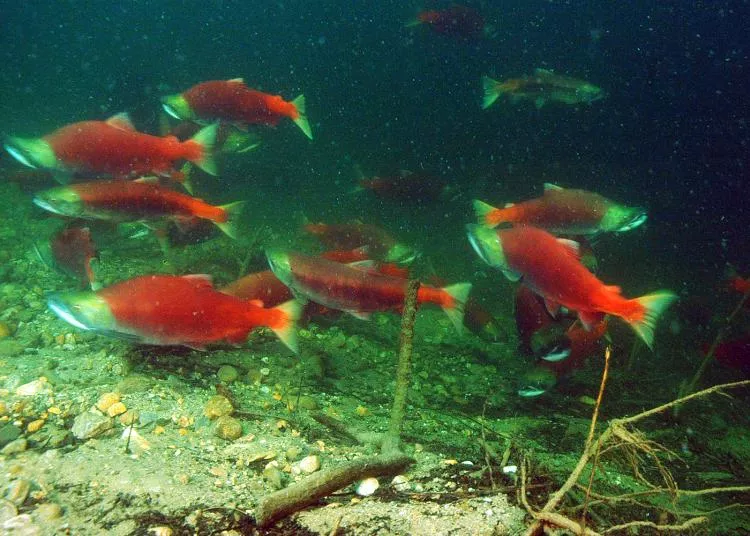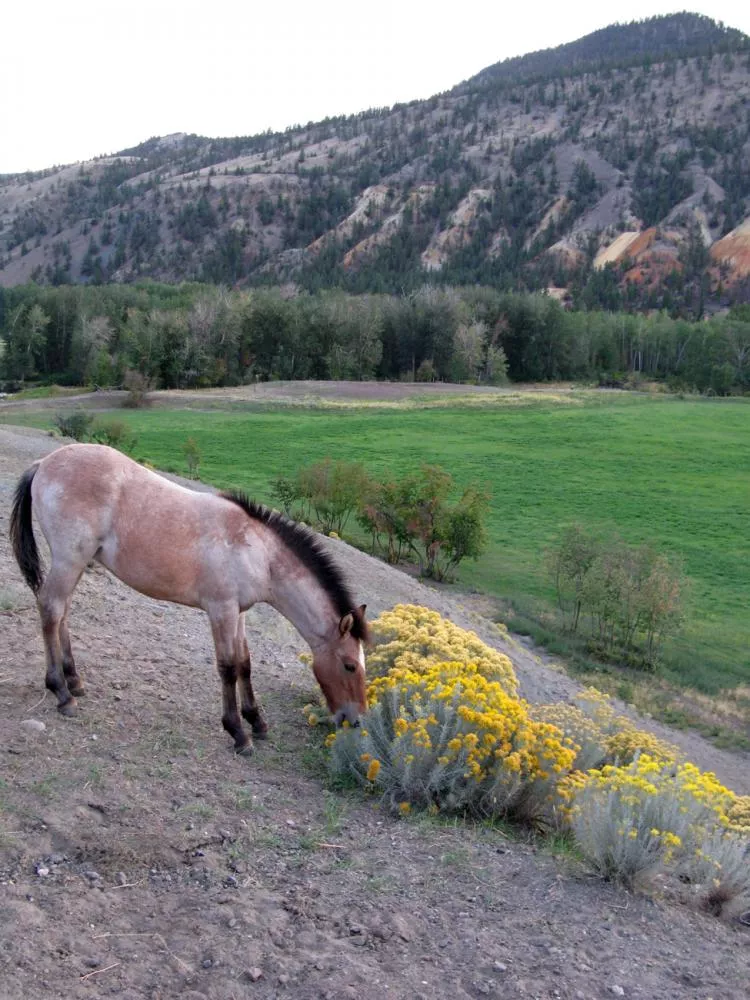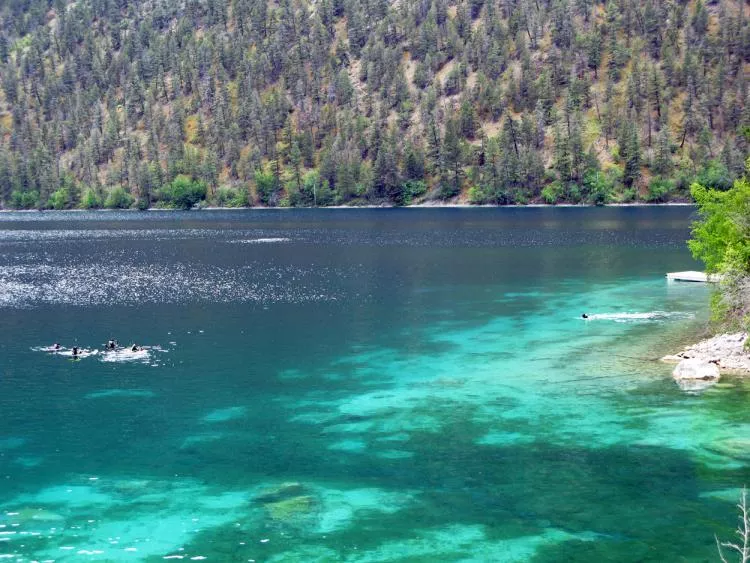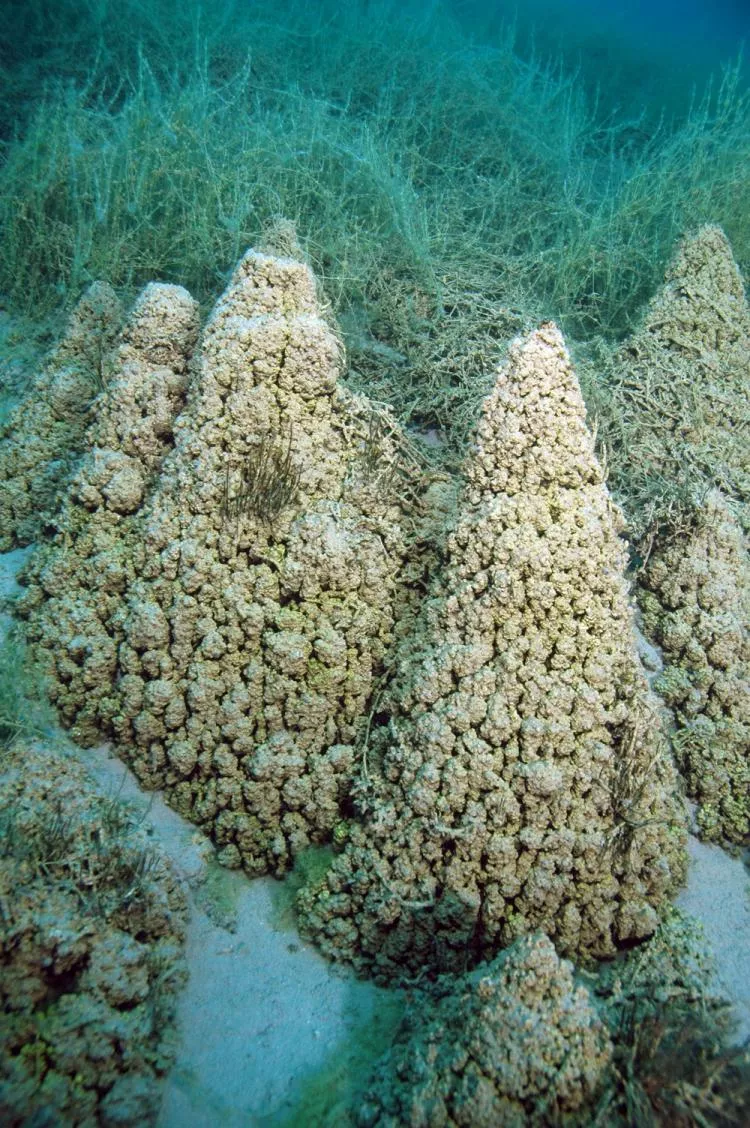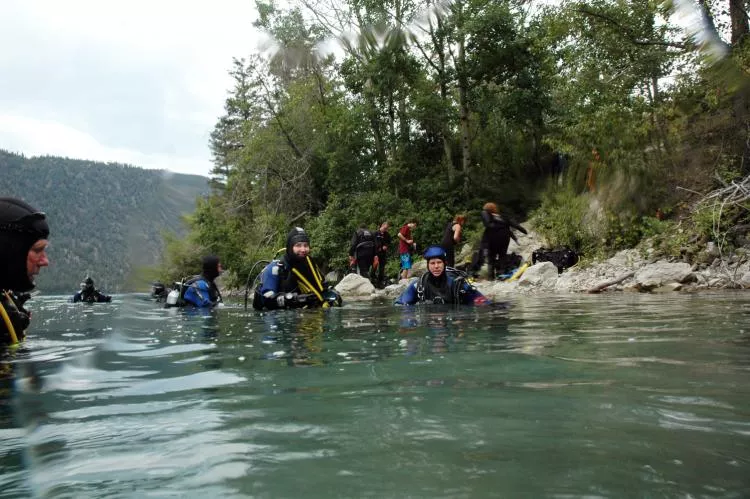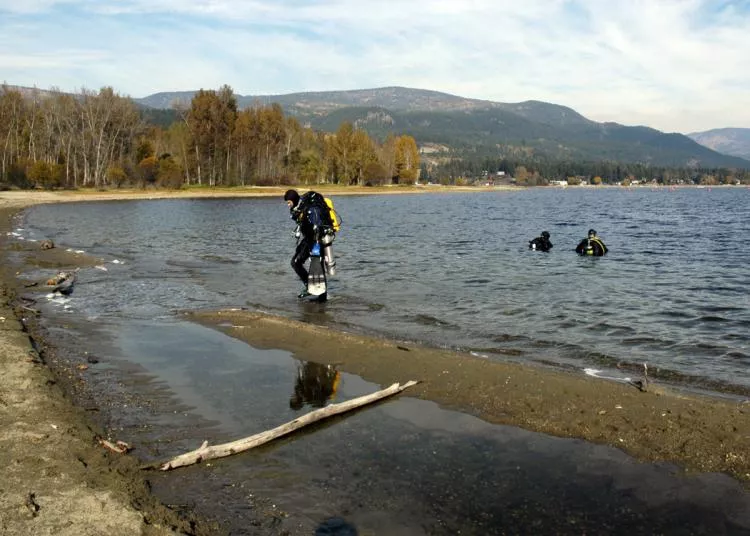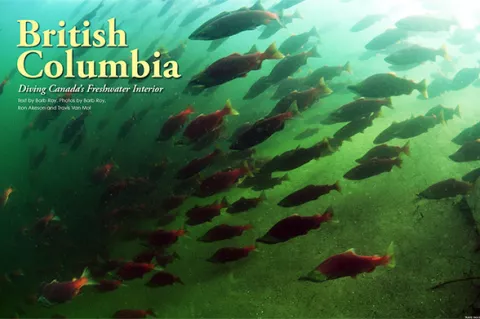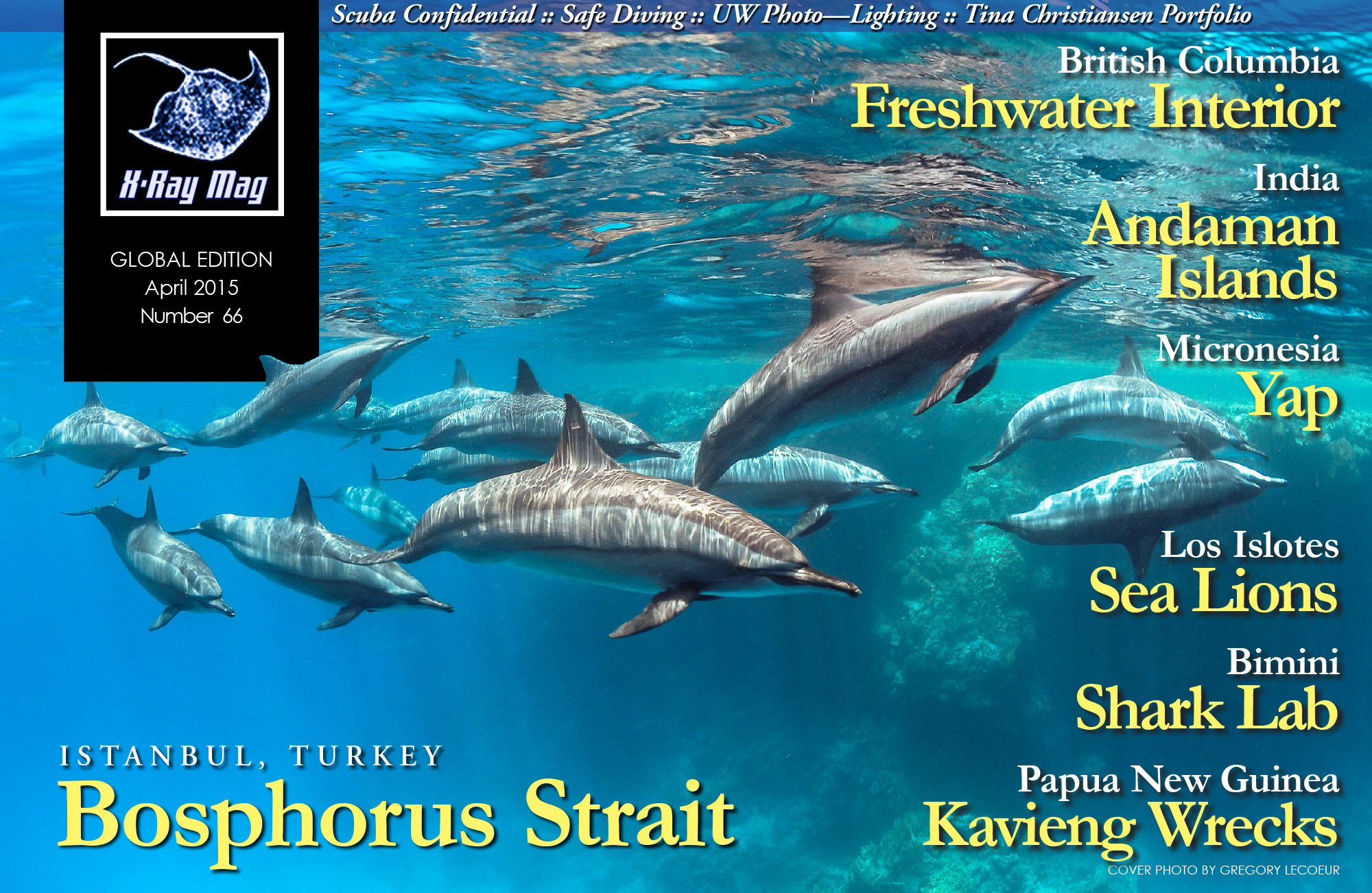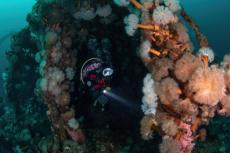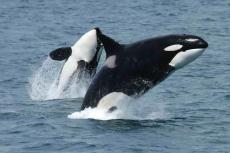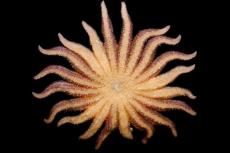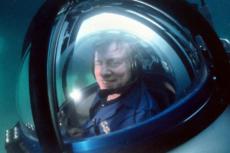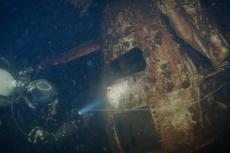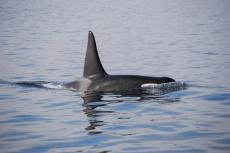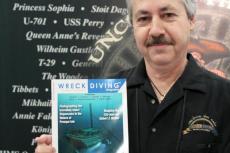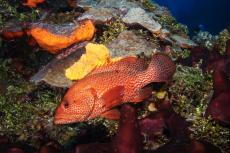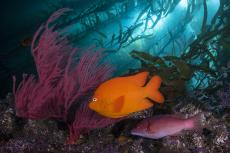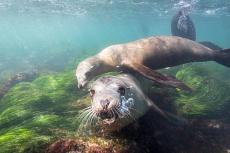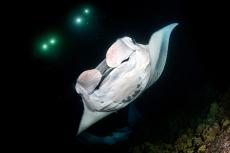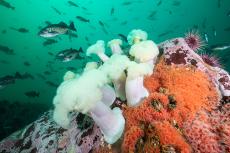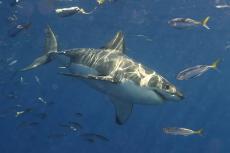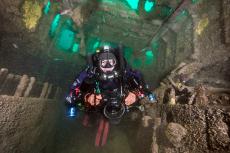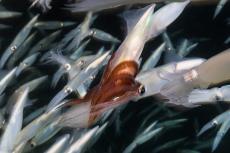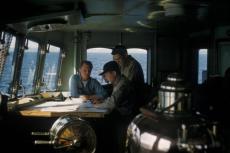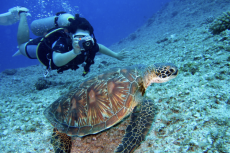Although British Columbia’s (BC) coastal area offers numerous shipwrecks, colorful walls and reefs full of life, there are also a considerable amount of freshwater lakes and rivers to explore within what is known as BC’s Interior Region of Canada. Actually, you might be surprised at what you will find to do and see above and below the water.
Contributed by
Factfile
REFERENCES:
Hall, William M. Diving British Columbia: Lakes and Rivers
Taylor, Heith. The Birder’s Guide
UASBC Historic Shipwrecks of the West Kootenay District
www.bcreptiles.ca
www.diveindustrybc.com
www.lonelyplanet.com
www.salmonsociety.com
www.tourismkelowna.com
On many occasions I have joined friends and dive groups to check out some of the more popular Interior destinations, but I was amazed to find many more sites were also available. Most of the locations are listed on dozens of different websites, including a few informative You Tube videos. Some I knew nothing about. I have listed below several to wet your travel-hungry curiosity as well as included some advice from some active divers residing in the areas of mention.
If you are driving from Vancouver, our dive getaways usually started by meeting up in the city of Kamloops, located about 310km (193 miles) northeast of Vancouver. Dale Anderson, owner of Ocean Pacific dive store in Kamloops and an SSI Master Instructor shared some of his general knowledge for those wanting to visit the area:
“Ocean Pacific has been here since about 1970, but I have been here since 1993. We dive year round because the lakes, like the ocean, cools down and the visibility gets much better. Water temperature during the summer is around 70°F at the surface and 45°F at 100 feet. Winter temperatures are 40°F at the surface and 32°F at 100 feet!”
As with most temperate water destinations I have found wearing proper thermal protection is a must. This is achieved by wearing a dry suit or a very thick 6.5 to 7mm wetsuit. I can tell you first-hand, when I was ice-diving the lakes in Alaska, a dry suit was the preferred choice when conducting multiple dives in one day.
Pavilion Lake
On several occasions I have joined wreck-explorer and filmmaker Ron Akeson and local dive instructor Travis Van Mol to photograph and see the unusual mounds of microbialites found growing at the bottom of the lake. Peter Symes, editor-in-chief of X-RAY MAG, joined us on one of the excursions.
“These unusual structures resemble large termite mounds and vary in size and shape, depending on their depth,” comments Ron. “However, it is imperative to utilize proper buoyancy control when diving here.”
Because of the fragile nature of these structures, the World Heritage Site has granted Protection Status to the lake. It is believed that these single-celled bacteria and algae microbialites are important in relation to the study of earth’s history which is one of the reasons this lake attracted the attention of NASA (National Aeronautics and Space Administration) from the US and Canada’s CSA (Canadian Space Agency) several years back for further scientific studies (www.pavilionlake.com). You Tube also boasts some great videos about their research and discoveries during the Pavilion Lake Project.
When I interviewed Canadian Astronaut, Chris Hatfield, who also participated in the project, he was excited about his experience and commented:
“I get asked a lot, what are we finding on the bottom of the lake. Well, first off we lift these one-man subs called Deep Workers with a crane into the water from a floating platform. We blow air out of it so it gently sinks into the water. Then we use cameras and robot arms to film and pick up samples from the bottom of the lake. Some of the microbialites are as big as you are and some bigger than the subs. These huge structures are growing at the bottom of the lake.
“The things we call microbialites have existed around the world and in our oceans for billions of years and yet here they are being formed and we can actually see the process happening here in this lake. If we can understand the microbialites on this planet then we can start looking for them on other planets and see whether they have had life in their history. So what seems like a small innocent lake in British Columbia actually becomes a window in understanding history in the rest of the universe. And that’s why this whole team wants to try and really understand what is going on in this lake so that we can apply it to everything else.”
The lake sits within Marble Canyon Provincial Park at an elevation of 806m (2,643ft). Dive access is across from the small island with minimal parking. The surrounding topside terrain resembles the underwater scenery, including structures on the hills around the lake, hinting the water level might have once been much higher. Travis said the microbialites are also found in nearby Kelly Lake, which was the focus of study in 2011 by a similar group of scientist from CSA and NASA.
Paul Lake
This picturesque lake is located in Paul Lake Provincial Park, 20km north of Kamloops. When asked where and when are the best ice-diving lakes, Travis replied, “February is the best time for ice diving. Our signature Valentine dive takes place at Paul Lake or Pavilion Lake and is a great event! We carve a big heart in the ice to dive through.”
Travis also mentioned he will get together with friends during the warmer months for an after-work dive in Paul Lake, “You can see thousands of shiner fish,” he adds.
When not diving, this is an excellent lake for fishing rainbow trout! Camping is also available, complete with swimming areas for the kids and boat launching sites.
Johnson Lake
Similar to Pavilion Lake, this equally clear lake rests on a limestone bed at an elevation of about 1,117m (3,666ft) with a dive depth of around 15m (50ft) or more. Fallen trees are one of the main features to see here, forming a maze to swim through. During the winter months this is another popular lake used for ice diving.
Dale adds, “There is a cool land-slide here and usually crystal clear water, but cold.”
The water tends to take on a turquoise blue coloration because of the limestone foundation and is bordered in some areas by long white sandy beaches (east end), giving it a tropical appearance. Paddling around the lake in kayaks is exceptional but the fly-fishing can be extra special, especially if you hook into one of the prized rainbow trout! Hiking and horseback riding are also popular around the lake during the summer months.
Adams Lake/River
This is where Travis, Ron and I always jump in to see the hordes of returning Sockeye Salmon as they bunch together to head up the River to spawn in early October. Although it is a bit of a hike to get to the lake from the parking lot, it is easy when two trips are made. We always brought along a large tarp to lay on the sand at the water’s edge, for the dive gear.
Andy Lamb, author of several dive-related books and co-owner of Cedar Beach Bed & Breakfast on Thetis Island (Vancouver Island), also took advantage of the brilliantly red spectacle this past season, commenting:
“We dove at the mouth of Adams River where it enters the lake. The diving was from the shore and easy to do. Visibility was good but not spectacular. Swimming into the current tight at the mouth was challenging but offered the best chance for photography. I was very pleased to see a surprising number of other fish species like a few Chinook salmon, bull trout, rainbow trout, many large-scale suckers, some Rocky Mountain whitefish, burbot (freshwater codfish) and small sculpins.”
When diving here I used a regular scuba unit but my dive companions were diving rebreathers. Observing how the salmon reacted to all of us, I am not sure they were able to get any closer to the fish than I did while using open-circuit. Most of the fish were more interested in their journey up the river but a few were curious enough to swim around me and get within an arm’s length from me.
Shuswap Lake (Big & Little)
Full of sandy beaches and great family fun, this is the lake Travis told us about where you can find a number of wrecks, including an old model “T”. Ellison Park in Vernon even has a dive park with some old boats and truck cabs. While on the website for Copper Island Diving I counted 25 different shore and boat accessible locations for diving.
Other activities to do include paddling around in kayaks or canoes, hiking one of several trails, cycling on specific trails (helmets are mandatory in BC), bird watching or just photographing the lake’s beautiful topside scenery. Windsurfing, waterskiing and swimming are even more things to add to a sunny day. Due to the popularity of this lake, reservations are recommended for the campsites in the Shuswap Lake Provincial Park during the summer.
Lake Okanagan
This 780-foot deep lake near the town of Kelowna is 341m (1,000ft) above sea level. I counted ten dive sites on Tourism Kelowna’s website which includes an old milk truck in 100ft at Wilson’s Landing, small caves and rock formations at Rattlesnake Island and two small boat wrecks in 30ft at Paul’s Tomb. On the website of Kelowna Divers, the Otter Bay Scuba Park, located in Ellison Provincial Park, is mentioned, where divers can find a rowboat, Boston Whaler, an old truck and several other items.
Sheldon Boyd, owner of Serpent Aquatics, located in West Kelowna, is an avid diver in Lake Okanagan adding, “There is a lot of history around the lake and divers can find small boats, old piers, glass bottles and other artefacts around the lake. Divers have set boats into two provincial parks—Kickinee—north of Penticton and Ellison—west of Vernon and the largest wreck known and dove in the lake is a CP Rail Car Barge located in Fintry Provincial Park. Access to Fintry and Ellison is from April to Thanksgiving in October. The barge is a UASBC archaeological site and is marked with a plaque.
“The lake has a current that generally runs from north to south and depending on winds and waves movement can be strong and sometimes reversed in particular areas. There are numerous beach-accessible dive sites on both the east and west sides of the lake... some are in parks while most are beach access roads or regional parks. The lake can freeze along the shoreline in places but hasn’t frozen over for many years.
“Okanagan Lake is approximately 80 miles long and temperatures are as low as 34°F from December through February. By May people are swimming in the lake, and by August the temperature can be 72°F on the surface and 55°F around 60ft. Visibility is best November through early December. Once the snow melts, visibility drops during the spring run-off and from there into summer ranges up to 30ft depending on the dive site. August through October is the best months to see a lot of fish in the lake as the Kokanee Salmon start their annual spawn. This brings along a host of other fish from fry to large carp that can be up to 3ft in length. There have been reports of sturgeon in the lake and some have washed ashore.”
The Okanagan Valley is also known for its wonderful orchards, vineyards and family-friendly campgrounds. I really enjoying visiting a farmer’s market after my dives to indulge in one of the locally grown fresh apples!
Other lakes
“The Upper Arrow Lakes, Kootenay Lake, Slocan Lake, Kootenay River are all iconic for historic wrecks,” suggests Travis. He wasn’t kidding; I found information on three train boxcars in Slocan Lake, near Silverton in 30-90 feet of water. The steamer tug Ymir (1899) can be found at Nelson’s waterfront park in Kootenay Lake. If diving shipwrecks is your passion, then perhaps the best place to start is with the book, Historic Shipwrecks of the West Kootenay District, published by the Underwater Archaeological Society of British Columbia, which features 13 wrecks and the 1897 City of Ainsworth wreck.
No matter which lake you choose to explore, be sure to adjust your dive planning to the altitude and always use a dive flag/float. While on my various adventures exploring BC’s Interior, I found the book, Diving British Columbia Lakes and Rivers, written by William M. Hall, very helpful. Local dive stores and clubs is another source of updated information to join up with local groups or hire a guide if needed.
One note worthy of mention is the possibility of seeing turtles in many of the lakes. The western painted turtle is the most common, identified by bright yellow stripes on its head, neck, tail and legs with red coloration on its underside shell. These native pond turtles spend winters hibernating in the muddy lakebeds, surviving icy cold conditions with half a meter of ice covering the water!
A favorite site Travis likes is Chum Lake, in the Turtle Valley near the town of Chase, “The painted turtles are in no more than 20 feet of water, which you can do snorkeling. The turtles seem safe to dive with, but it can be hard to know where they are at times.”
When we weren’t diving, Ron and I rented kayaks in Kamloops to paddle out to see the white pelicans and enjoy the fall foliage. We also went on several hikes around Adams Lake so he could film the salmon in the river with his GoPro camera mounted on a long pole. The North and South Thompson Rivers support the largest interior wintering tundra trumpeter swans, so that may mean a return trip in the near future! There was even a group offering a tour where you could paddle the path of the salmon in a canoe.
Overall I found the region offered plenty of diving or camping options and additional activities like horseback riding, paddle boarding, swimming, snorkeling, wildlife viewing and fishing. ■

